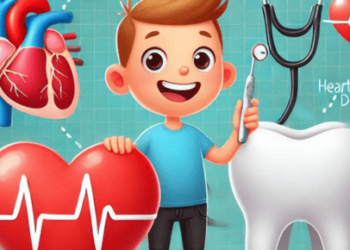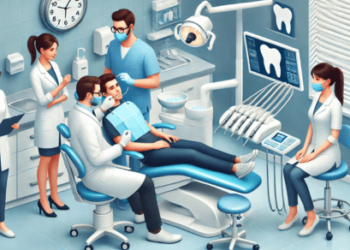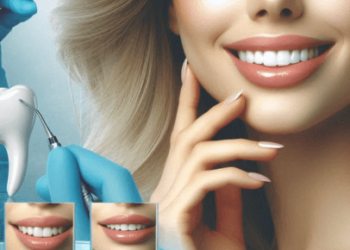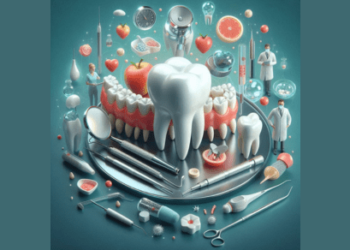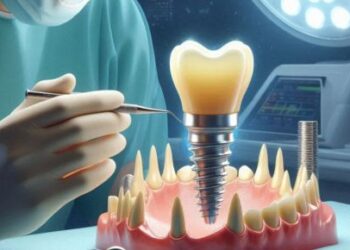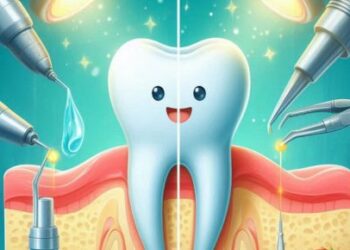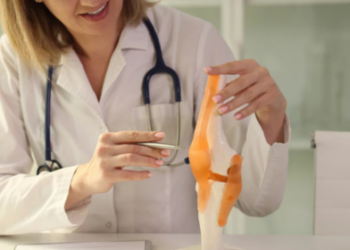Mouthwash is a liquid solution used to rinse the mouth, teeth, and gums to promote oral health and hygiene offered by the dental services provider. It is an essential part of a complete oral care routine, providing numerous benefits that complement brushing and flossing. In this article, we will explore the importance of mouthwash in maintaining good oral health.
What are the types of mouthwash?
Here are the different types of mouthwashes:
- Antibacterial Mouthwash: Kills bacteria and other microorganisms that can cause oral infections.
- Fluoride Mouthwash: Strengthens tooth enamel, prevents tooth decay, and promotes healthy teeth.
- Antifungal Mouthwash: Treats fungal infections like oral thrush.
- Natural Mouthwash: Made from natural ingredients, often without alcohol or harsh chemicals.
- Whitening Mouthwash: Helps remove surface stains and whiten teeth.
- Desensitizing Mouthwash: Helps reduce tooth sensitivity.
- Anti-Plaque Mouthwash: Helps prevent plaque buildup and gum disease.
- Gingivitis Mouthwash: Treats and prevents gingivitis, a mild form of gum disease.
- Mouthwash for Dry Mouth: Helps relieve dry mouth symptoms and promotes saliva production.
- Mouthwash for Sensitive Teeth: Designed for people with sensitive teeth, often containing ingredients like potassium nitrate.
- Mouthwash for Gum Health: Promotes healthy gums and prevents gum disease.
- Alcohol-Free Mouthwash: Suitable for those who prefer a non-alcoholic mouthwash or have sensitive mouths.
- Essential Oil Mouthwash: Contains essential oils like peppermint, eucalyptus, or tea tree oil for their antibacterial properties.
- Prescription-Strength Mouthwash: Contains stronger ingredients than over-the-counter mouthwashes, often prescribed for specific oral health issues.
What are the benefits of mouthwash?
Benefits of mouthwash include the following:
- Kills Bacteria: Mouthwash helps eliminate bacteria, viruses, and fungi that can cause oral infections, bad breath, and gum disease.
- Reduces Plaque: Mouthwash can help reduce plaque, a sticky film of bacteria that can lead to tooth decay and gum disease.
- Gum Health: Mouthwash can help prevent gum disease (gingivitis) and promote healthy gums.
- Fresh Breath: Mouthwash leaves your mouth feeling clean and fresh, boosting confidence.
- Removes Food Particles: Mouthwash helps remove food particles and debris from the mouth, especially in areas where brushing and flossing may miss.
- Prevents Tooth Decay: Fluoride mouthwash can help prevent tooth decay and strengthen tooth enamel.
- Soothes Mouth Sores: Mouthwash can help soothe mouth sores, cuts, and irritations.
- Reduces Inflammation: Some mouthwashes have anti-inflammatory properties, reducing swelling and pain in the mouth.
How to use mouthwash?
Here’s a step-by-step guide on how to use a mouthwash:
- Read the Label: Before using a mouthwash, read the label for instructions and ingredients.
- Measure the Right Amount: Use the recommended amount of mouthwash, usually 1-2 tablespoons.
- Rinse Your Mouth: Rinse your mouth with water to remove any loose food particles.
- Swish the Mouthwash: Swish the mouthwash around your mouth for 30 seconds to 1 minute.
- Reach All Areas: Make sure to reach all areas of your mouth, including:
- Teeth
- Gums
- Tongue
- Roof of the mouth
- Back of the mouth
- Don’t Swallow: Do not swallow the mouthwash, especially if it contains fluoride or other ingredients not meant for ingestion.
- Spit it Out: Spit out the mouthwash completely.
- Rinse with Water: Rinse your mouth with water to remove any remaining mouthwash.
- Do Not Eat or Drink: Avoid eating or drinking for at least 30 minutes after using mouthwash to allow the ingredients to work effectively.
- Use Regularly: Use mouthwash regularly, usually after brushing and flossing, as part of your oral hygiene routine.
Mouthwash is a vital component of a complete oral care routine, providing numerous benefits that complement brushing and flossing. By incorporating mouthwash into your daily routine, you can promote oral health, prevent oral infections, and maintain a healthy, confident smile. Remember to choose the right type of mouthwash for your needs and use it as directed for optimal results.

